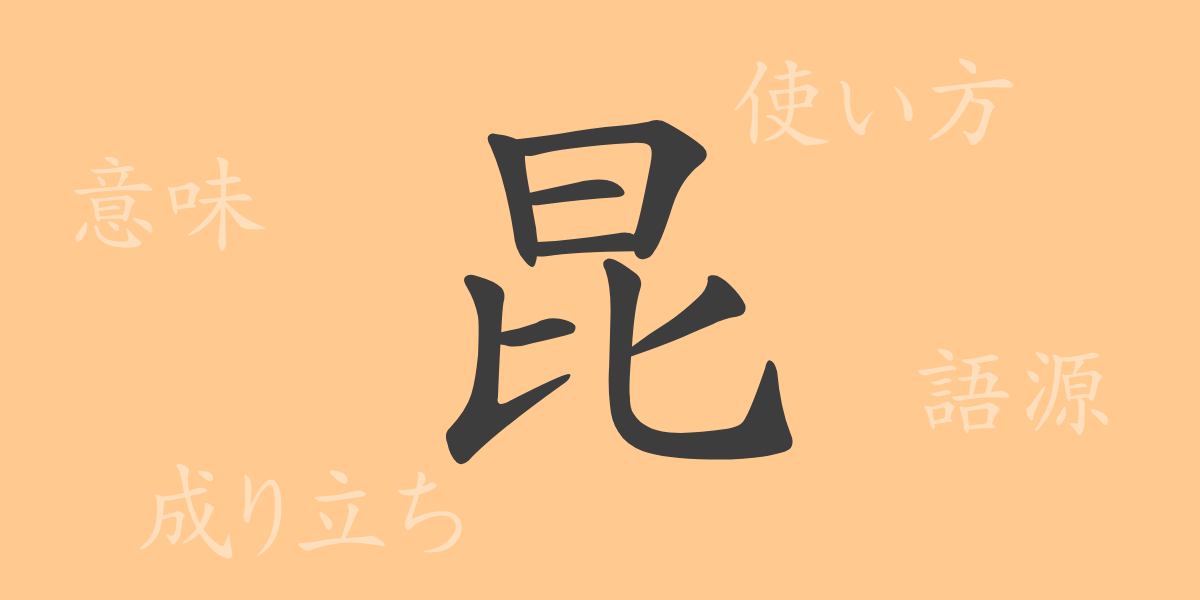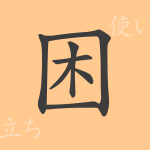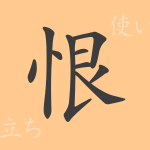The Japanese language is rich with kanji, each holding unique histories and meanings. Today, we focus on the commonly used kanji “昆(こん, kon)” and explore its fascinating attributes. What role does this kanji play in Japanese culture and language? From its origins to compound words, let’s delve deep into the world of “昆(こん, kon).”
Origin of 昆(こん, kon)
The kanji “昆(こん, kon)” is an ancient Chinese character that depicts insects within a mountain. This character, seen in words like “昆虫(こんちゅう, konchuu)” (insect), signifies “groups” or “crowds,” symbolizing the gathering of many creatures. Additionally, “昆(こん, kon)” is part of the mythical mountain “昆侖(こんろん, konron)” in ancient Chinese mythology, believed to be home to immortals.
Meaning and Usage of 昆(こん, kon)
The kanji “昆(こん, kon)” means “group” or “siblings.” It primarily refers to large gatherings of people or animals. It can also be used affectionately to refer to individuals, as seen in words like “昆仲(こんちゅう, konchuu)” or “昆季(こんき, konki),” which mean siblings or close relatives.
Reading, Stroke Count, and Radical of 昆(こん, kon)
The basic information about the kanji “昆(こん, kon)” is as follows:
- Reading: The on’yomi (音読み) is “コン(kon),” and it does not have a kun’yomi (訓読み).
- Stroke count: “昆(こん, kon)” has 8 strokes.
- Radical: The radical is “日部(ひへん, hihen)” (sun).
Idioms, Phrases, and Proverbs Using 昆(こん, kon)
There are various idioms, phrases, and proverbs that include “昆(こん, kon).” Here are a few examples:
- 昆虫(こんちゅう, konchuu): Refers to all types of insects.
- 昆布(こんぶ, konbu): A type of seaweed used as food.
- 昆季(こんき, konki): Refers to a sibling close in age.
- 昆仲(こんちゅう, konchuu): Refers to siblings or close friends.
- 昆弟(こんてい, kontei): Refers to brothers, especially younger ones.
These idioms and phrases illustrate how “昆(こん, kon)” is used in Japanese language.
Conclusion on 昆(こん, kon)
The kanji “昆(こん, kon)” plays an important role in Japanese, thanks to its rich history and diverse meanings. Representing groups and siblings, it is a familiar and meaningful character in everyday expressions. Each kanji, including “昆(こん, kon),” tells a story of Japan’s linguistic and cultural richness.

























